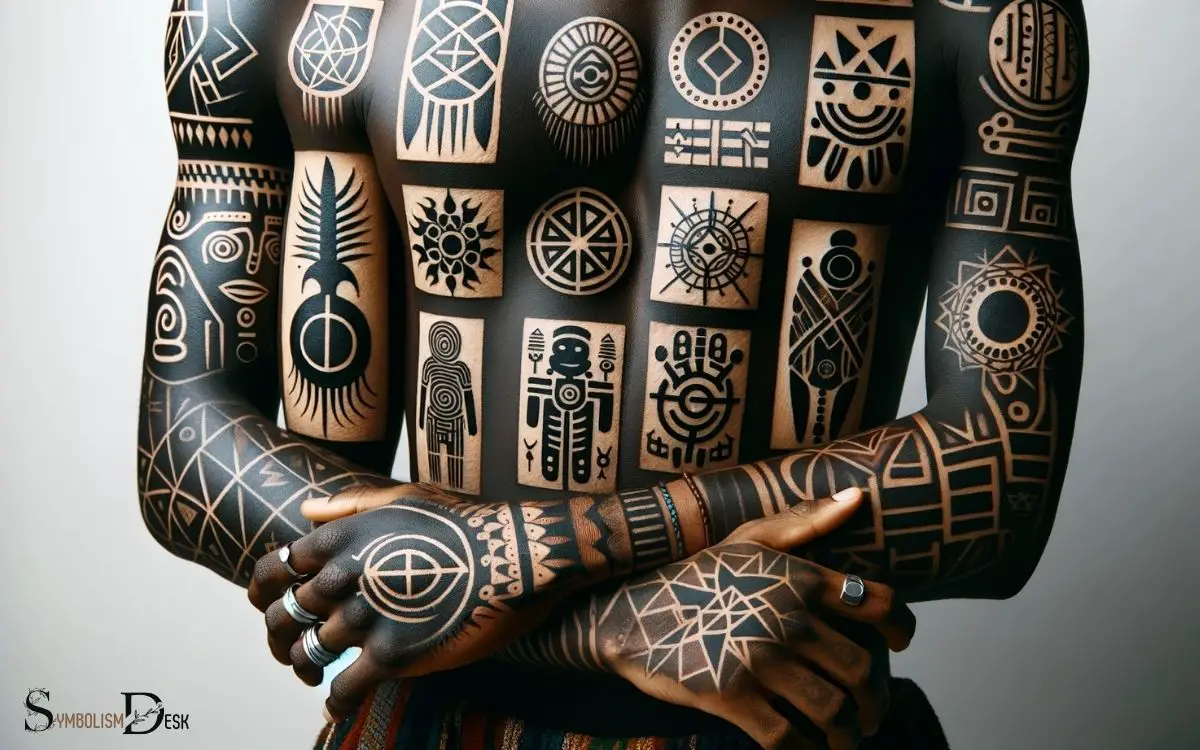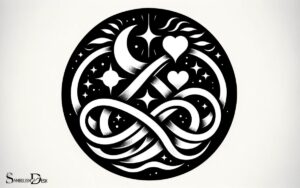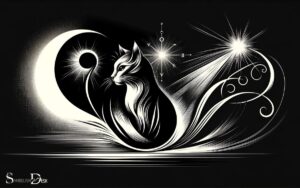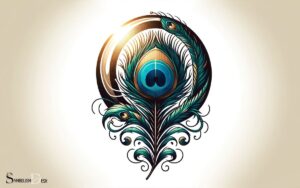African Symbol Tattoos and Meanings: Unity!
Unlock the profound meanings of African symbol tattoos that reflect the continent’s rich cultural heritage. These tattoos often represent concepts such as strength, unity, and wisdom, deeply rooted in African history and spirituality.
By choosing an African symbol for a tattoo, individuals connect with the ancestral stories and values that these symbols embody.
African symbol tattoos are more than mere decorations; they are a form of storytelling and identity expression.
Here are some examples of popular African symbols and their meanings:
- Adinkra Symbols: Originating from the Akan people of Ghana, these symbols are widely used in fabrics and pottery. Each symbol carries a specific meaning, like the Gye Nyame, symbolizing the supremacy of God.
- Hieroglyphs: Ancient Egyptian writing that contains a multitude of symbols conveying various messages and stories.
- Nsibidi: An indigenous script found among the Efik/Ibibio people of Nigeria, representing concepts through intricate symbols.
Embrace the wisdom of African ancestors with tattoos that symbolize life’s profound truths and cultural legacies.

Key Takeaway
History of African Symbol Tattoos
Although the origins of African symbol tattoos can be traced back for centuries, their history has been largely passed down through oral tradition and cultural practices.
These symbols hold deep cultural and spiritual significance for various African communities, representing values, beliefs, and life experiences.
The history of African symbol tattoos is rich and diverse, reflecting the continent’s multitude of cultures and traditions.
From the Adinkra symbols of the Akan people in West Africa to the Nsibidi symbols of the Ejagham people in southeastern Nigeria, each symbol carries a unique story and meaning.
These tattoos were historically used for rites of passage, spiritual protection, and tribal identification, and they continue to be an important part of African heritage today.
Understanding the history of African symbol tattoos requires a respectful appreciation of the diverse cultures from which they originate.
Importance of African Symbols
The importance of African symbols lies in their profound cultural and spiritual significance for various African communities, reflecting values, beliefs, and life experiences.
These symbols are integral to the rich tapestry of African heritage, serving as a means of preserving and transmitting cultural knowledge from one generation to another.
They provide a visual and conceptual language that embodies the collective wisdom, spirituality, and traditions of diverse African societies.
Additionally, African symbols hold great importance in fostering a sense of identity and belonging within the community, promoting unity and solidarity.
Understanding the meanings behind these symbols allows for a deeper appreciation of African culture and history, bridging the gap between the past and the present.
With this in mind, it’s essential to explore common African symbols and their meanings to gain a comprehensive understanding of their cultural significance.
Common African Symbols and Their Meanings
Drawing from the rich tapestry of African heritage, various communities across the continent utilize a wide array of symbols to encapsulate their values, spirituality, and traditions.
Some common African symbols and their meanings include the Adinkra symbols from Ghana, such as the Sankofa bird representing learning from the past, and the Maasai shield and spears representing protection and strength.
Additionally, the Ethiopian cross is a powerful symbol of Ethiopian Orthodox Christianity, while the Ndebele people of South Africa use vibrant geometric patterns to adorn their homes and bodies, symbolizing unity and cultural pride.
These symbols not only hold deep cultural significance but also serve as a source of inspiration and connection to the diverse and profound heritage of the African continent.
Symbolism in Different African Cultures
Symbolism in different African cultures encompasses a diverse range of symbols that hold deep cultural significance and embody values, spirituality, and traditions within various communities across the continent.
These symbols are deeply rooted in the history and belief systems of different African societies, representing a rich tapestry of cultural heritage.
Some examples of symbolism in different African cultures include:
- Adinkra symbols of the Akan people in Ghana, representing concepts such as wisdom, creativity, and perseverance.
- The Ankh, an ancient Egyptian symbol that signifies life, immortality, and the divine.
- The Ndebele house painting traditions of South Africa, which use geometric patterns and vibrant colors to convey cultural identity and values.
These symbols are just a few among many that highlight the varied and profound meanings found in African cultural symbolism.
Transitioning into the subsequent section about ‘modern interpretations of African symbol tattoos’, the rich tapestry of cultural heritage continues to influence contemporary expressions of African symbolism.
Modern Interpretations of African Symbol Tattoos
Continuing the exploration of African cultural symbolism, contemporary interpretations of African symbol tattoos often incorporate traditional symbols into modern designs, reflecting the enduring influence of these cultural motifs.
These modern interpretations provide individuals with a way to connect with African heritage while expressing their personal style.
The table below showcases some traditional African symbols and their modern interpretations in tattoo art.
| Traditional Symbol | Modern Interpretation |
|---|---|
| Adinkra symbols | Geometric patterns |
| Ankh | Minimalist line work |
| Maasai beadwork | Vibrant color palettes |
| Ndebele patterns | Abstract designs |
Choosing the Right African Symbol Tattoo
When choosing the right African symbol tattoo, it’s important to consider symbol selection guidance and personal significance.
Symbols hold different meanings for different cultures and individuals, so it’s crucial to understand the historical and cultural context behind the symbol you choose.
Additionally, it’s essential to reflect on the personal significance of the symbol and how it aligns with your values and beliefs.
Symbol Selection Guidance
African symbol tattoos should be chosen based on personal significance and cultural relevance.
When selecting an African symbol for a tattoo, individuals should consider the following guidance:
Research Symbol Meanings: Take the time to research the meanings and cultural significance of different African symbols. Understanding the history and context of the symbol will ensure that it aligns with personal values and beliefs.
Consult with a Cultural Expert: If possible, consult with someone knowledgeable about African culture and symbolism. This could be a cultural historian, anthropologist, or a member of the African community.
Their insights can provide valuable guidance in selecting a symbol that accurately represents its intended meaning.
Reflect on Personal Connection: Reflect on personal experiences and connections to specific symbols. Choosing a symbol that holds personal significance can add depth and individuality to the tattoo.
Personal Significance Consideration
After considering the guidance for symbol selection, individuals should now delve into the personal significance of African symbols when choosing the right tattoo.
Understanding the personal meaning behind a tattoo is crucial, especially when it comes to cultural symbols. These designs often carry deep significance that may not be immediately apparent to an outside observer, making it essential to approach them with respect and sensitivity. For instance, german tattoo symbols and meanings can reflect elements of heritage, history, or personal identity, varying greatly depending on the context. Taking the time to learn about these symbols allows for a more nuanced appreciation of their origins and the stories they tell.
Below is a table that showcases some common African symbols, along with their meanings, to assist individuals in choosing a tattoo that aligns with their personal significance.
| Symbol | Meaning |
|---|---|
| Adinkra | Symbol of wisdom and knowledge |
| Ankh | Represents life and immortality |
| Maat | Signifies truth, justice, and harmony |
| Sankofa | Symbolizes learning from the past |
| Nkyinkyim | Reflects adaptability and dynamism |
Cultural Appropriation and African Symbol Tattoos
Cultural appropriation of African symbol tattoos has become a contentious issue in the contemporary tattoo culture.
The use of African symbols by individuals from other cultures as mere fashion statements without understanding their cultural significance has sparked debates.
It’s crucial to consider the following points when discussing cultural appropriation and African symbol tattoos:
- Respect for Cultural Significance: Acknowledge the deep cultural and historical meanings behind African symbols and approach their use with respect and understanding.
- Consultation and Consent: When considering getting African symbol tattoos, it’s essential to consult with individuals from the respective African culture and obtain their consent.
- Educational Awareness: Promote educational awareness about the meanings and origins of African symbols to foster a deeper understanding and appreciation for their cultural significance.
Respectful engagement with African symbol tattoos can help foster a more inclusive and understanding tattoo culture.
Conclusion
African symbol tattoos hold deep cultural and spiritual significance. They serve as a powerful connection to the rich history and traditions of various African cultures.
It’s important to choose a symbol that resonates personally and to approach the tattoo with respect and understanding of its origins.
Just as each symbol carries its own unique meaning, each individual’s choice of tattoo reflects their own personal journey and connection to African heritage.






